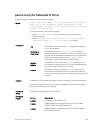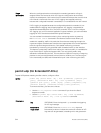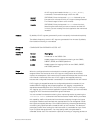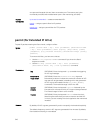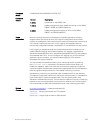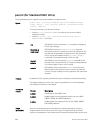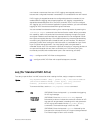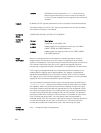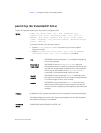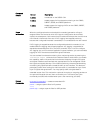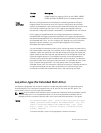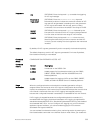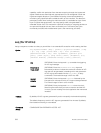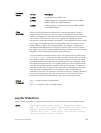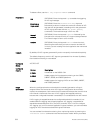
permit — configures a filter to forward packets.
permit tcp (for Extended IP ACLs)
To pass TCP packets meeting the filter criteria, configure a filter.
Syntax
permit tcp {source mask | any | host ip-address} [bit]
[operator port [port]] {destination mask | any | host ip-
address} [bit] [dscp] [operator port [port]] [count [byte]]
[order] [fragments] [log [interval minutes] [threshold-in-msgs
[count]] [monitor]
To remove this filter, you have two choices:
• Use the no seq sequence-number command if you know the filter’s
sequence number.
• Use the no permit tcp {source mask | any | host ip-address}
{destination mask | any | host ip-address} command.
Parameters
log (OPTIONAL) Enter the keyword log to enable the triggering
of ACL log messages.
threshold-in
msgs count
(OPTIONAL) Enter the threshold-in-msgs keyword
followed by a value to indicate the maximum number of ACL
logs that can be generated, exceeding which the generation
of ACL logs is terminated with the
seq, permit, or deny
commands. The threshold range is from 1 to 100.
interval
minutes
(OPTIONAL) Enter the keyword interval followed by the
time period in minutes at which ACL logs must be generated.
The interval range is from 1 to 10 minutes.
monitor (OPTIONAL) Enter the keyword monitor when the rule is
describing the traffic that you want to monitor and the ACL
in which you are creating the rule is applied to the monitored
interface.
Defaults
By default, 10 ACL logs are generated if you do not specify the threshold explicitly.
The default frequency at which ACL logs are generated is five minutes. By default,
flow-based monitoring is not enabled.
Command
Modes
CONFIGURATION-EXTENDED-ACCESS-LIST
Access Control Lists (ACL)
351



